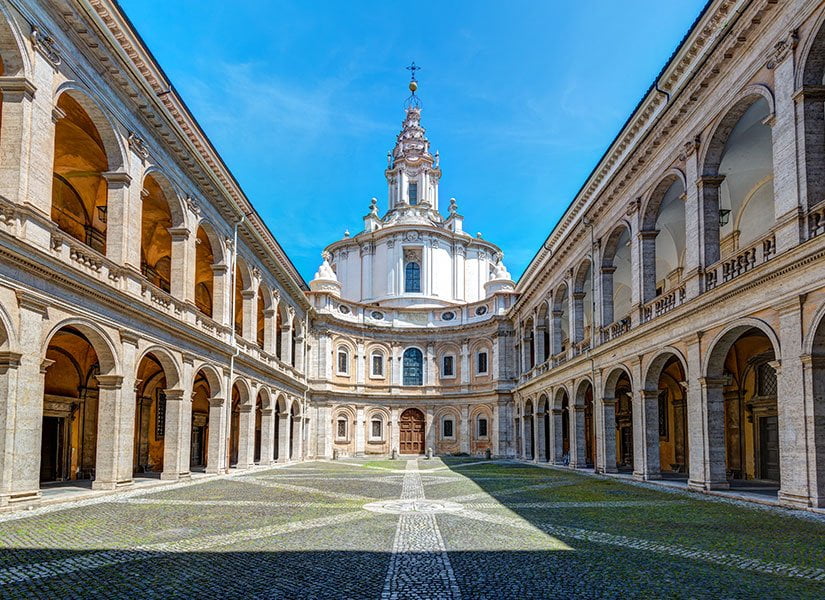ITALY
Italy attracts a growing number of visitors each year with its rich history and stunning landscapes. For international students, it offers a perfect blend of world-class education, affordability, and a comfortable lifestyle. Every year, hundreds of students from around the world choose Italy to pursue their higher education, aiming for a successful future. With its prestigious universities and safe living environment, Italy stands out as an ideal study destination.
What Makes Italy an Ideal Study Destination?
Italy boasts some of the oldest and most prestigious universities in the Western world, offering a strong and well-regarded higher education system. For centuries, the country has been a hub for academics, science, and the arts, attracting scholars and students from around the globe.
Studying in Italy provides a rich cultural, historical, and touristic experience. No matter which city you choose, you’ll find yourself surrounded by exquisite cuisine, a vibrant arts scene, countless opportunities to immerse yourself in Italian culture, and the renowned Mediterranean lifestyle. Italy consistently ranks highly as a study-abroad destination for those seeking both academic excellence and cultural enrichment.
The country is home to some of Europe’s oldest universities, including the University of Bologna, founded in 1088, as well as the University of Padua and the University of Naples, established in 1224.
Since 1999, Italy has followed the Bologna educational system, which structures studies into a three-cycle format. This 3+2 system allows students to earn a bachelor’s or master’s degree in five years, ensuring a globally recognized and high-quality education.
requirements for admission in italy
- Identity document
- Letter of recommendation
- Academic transcript of your previous studies
- Personal Statement
- University application form
- English or Italian language proficiency as per the program
expenses of studying in italy
Italy is one of the most budget-friendly study destinations in Europe. While major cities like Rome and Milan can have higher living costs, smaller towns are generally much more affordable. Additionally, many larger universities offer housing assistance, and students may have the opportunity to secure a spot in a cost-effective student residence.
Compared to other European countries, public universities in Italy have relatively low tuition fees, averaging around 1,000 EUR per year. However, highly ranked institutions may have slightly higher fees.
An exception is the University of Rome Tor Vergata, where tuition fees are based on a student’s family income. Depending on financial status, students pay anywhere from approximately 150 EUR to 5,000 EUR annually.

requirements for study visa in italy
- A valid passport
- Proof of no criminal record
- Proof of associated application fee
- A copy of your itinerary to and from Italy
- Letter of acceptance from your institution in Italy
- Visa application form
- Proof of accommodation in Italy
- Proof of adequate medical insurance
- Proof of financial means to support yourself
- Exam scores of language proficiency in Italian or English (depending on your study program)
Employment Opportunities After Graduation
With the Italy post-study work visa, non-EU international students can extend their study visas to search for employment in Italy or other Schengen countries. Fortunately, EU students can work in Italy without needing a work permit. However, international students must renew their residency status to continue working in the country.
If you plan to stay in Italy after completing your higher education, it is essential to understand the details of the post-study work visa. Graduates who have completed their studies in Italy have access to numerous job opportunities. Moreover, Italy is a developed nation with a strong economy, advanced infrastructure, and thriving industries.
FAQs:
Who needs a study visa for Italy?
Non-EU students must apply for a study visa to pursue higher education in Italy. EU students do not need a visa but must register their residence if staying for more than 90 days.
What are the requirements for an Italy study visa?
Key requirements include an acceptance letter from an Italian university, proof of sufficient financial funds, health insurance, accommodation details, and a valid passport.
Can I work in Italy with a study visa?
Yes, international students with a study visa can work up to 20 hours per week during their studies and full-time during holidays. However, a residence permit is required.
How long is the Italy study visa valid?
The study visa is usually issued for the duration of the academic program. Students must renew their residence permit annually to continue staying in Italy.
Can I stay in Italy after my studies?
Yes, non-EU students can apply for a post-study work visa to search for jobs in Italy or other Schengen countries. They must also update their residence permit accordingly.
